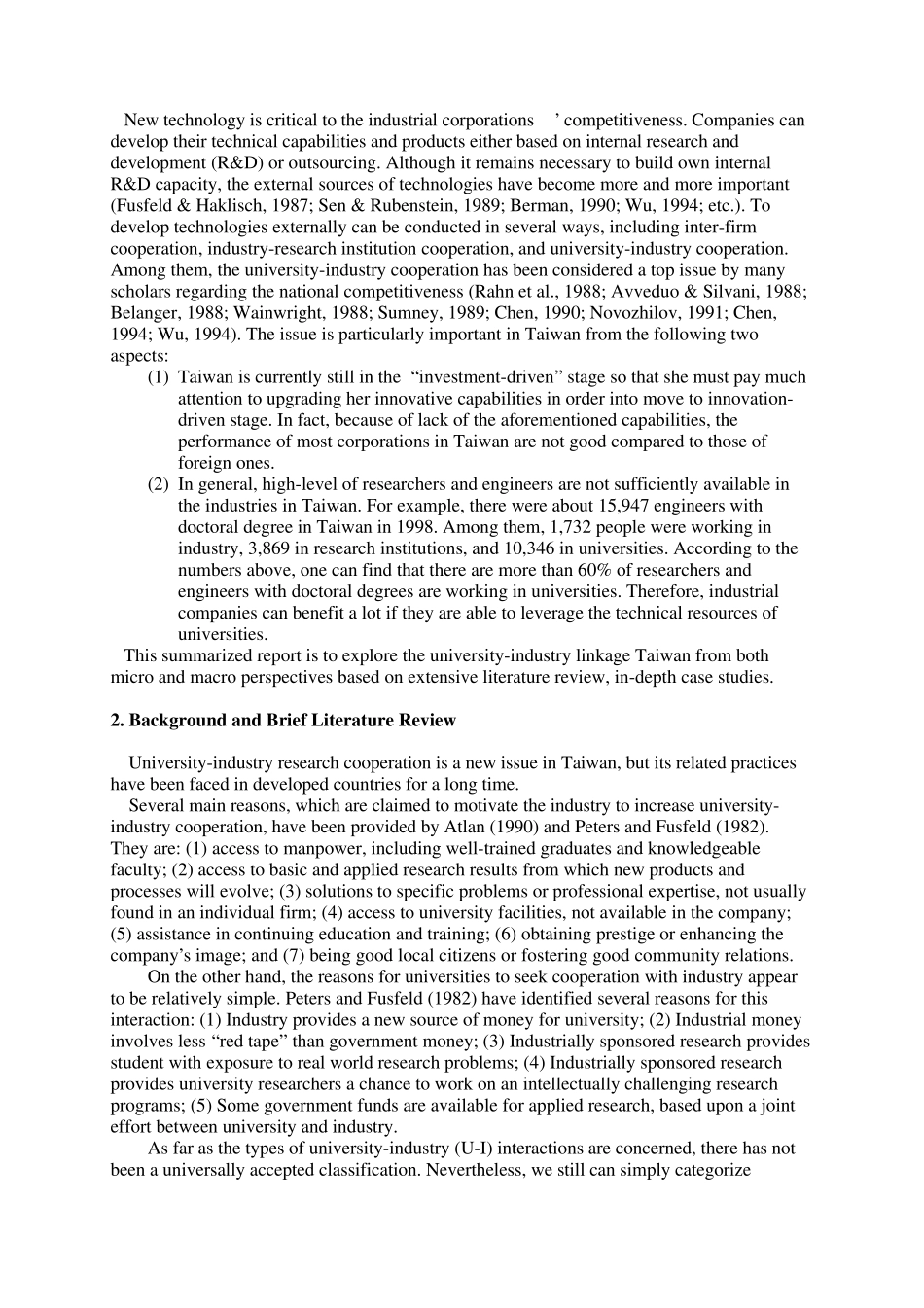University-Industry Linkage -The Case of TaiwanVincent F.-S. WuAssociate ProfessorGraduate Institute of Technology and Innovation ManagementNational Cheng Chi UniversityTaiwan, ROC.E-mail:fswu@nccu.edu.tw1. Introduction Taiwan has been working hard to change the situation from labor-intensive to knowledge-intensive economy. Nevertheless, one can still recognize that its current capabilities forinnovation is not solid enough, i.e., its “national innovation system (NIS)” is yet well-constructed. For example, Taiwan is placed on top 3 in the world in computer-related productareas in terms of outputs, but the corporations’ profits and value added are not sufficientcompared with those in developed economies. In addition, very few new products areoriginally developed from the firms based in Taiwan. New technology is critical to the industrial corporations’ competitiveness. Companies candevelop their technical capabilities and products either based on internal research anddevelopment (R&D) or outsourcing. Although it remains necessary to build own internalR&D capacity, the external sources of technologies have become more and more important(Fusfeld & Haklisch, 1987; Sen & Rubenstein, 1989; Berman, 1990; Wu, 1994; etc.). Todevelop technologies externally can be conducted in several ways, including inter-firmcooperation, industry-research institution cooperation, and university-industry cooperation.Among them, the university-industry cooperation has been considered a top issue by manyscholars regarding the national competitiveness (Rahn et al., 1988; Avveduo & Silvani, 1988;Belanger, 1988; Wainwright, 1988; Sumney, 1989; Chen, 1990; Novozhilov, 1991; Chen,1994; Wu, 1994). The issue is particularly important in Taiwan from the following twoaspects:(...


